Assignment 5: Special effects
Milestone 1: Due Thursday, March 30, before midnight
Milestone 2: Due Thursday, April 6th, before midnight
The goals for this assignment are:
-
Implement different particle systems
1. Getting started
Fork the repository at https://github.com/BrynMawr-CS313-S23/particles
Clone your copy of the repository to your own computer. To build,
don’t forget to do an "out of source" build and run cmake .. from the /build directory!
$ git clone git@github.com:<username>/particles.git
$ cd particles
$ mkdir build
$ cd build
$ cmake ..
$ make (or start particles.sln)
$ ../bin/sparkles (or ../bin/Debug/sparkles from the developer console in Visual Studio)| Your basecode uses the GLM math library for vectors, points, and colors (which have types for glm::vec3 and glm::vec4). |
| Your basecode is based on OpenGL 4.0 and so your shaders should be written in GLSL. This documentation contains a quick reference for GLSL! |
2. Milestone 1
Due March 30
Implement the following demos using particle systems and billboards.
2.1. Sparkles
You are given the source code for the sparkles demo we covered in class. The particle system is
implemented in sparkles.cpp. The point-sprite billboards are implemented in the vertex and fragment
shaders billboard.vs and billboard.fs.
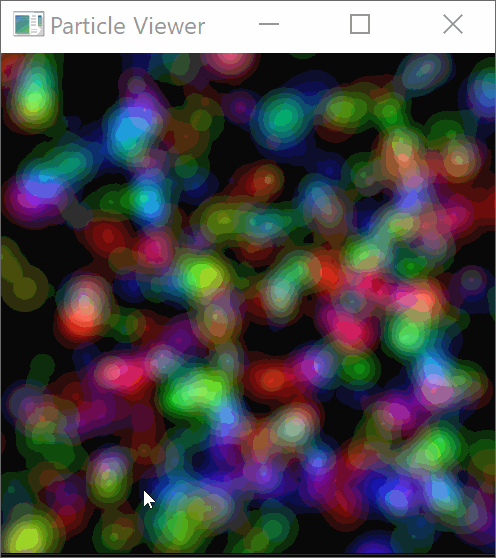
2.2. Sparkle Trail
Create a sparkle trailing effect. Use sparkles as a starting point.
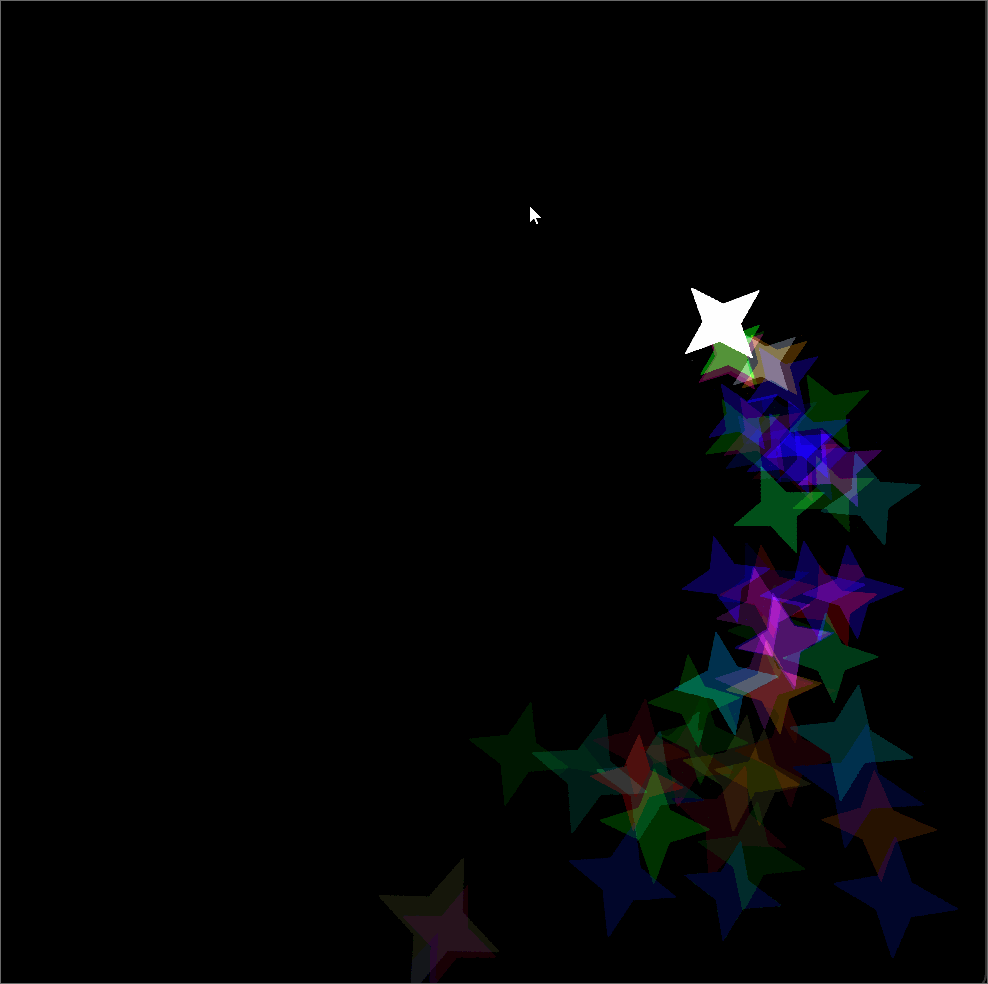
Hints/Requirements:
-
Start by animating the star to move in a circle (hint: use sine and cosine to update the position).
-
When you update the particle system, add new particles at the position of the main star.
-
The above demo updates the transparency, size, and rotation of the particles.
-
The above system initializes the velocity using the current velocity of the star. This makes the trail look like its trailing from the star.
-
Use an object pool to enforce a maximum number of particles
2.3. Explosion
In explosion.cpp, implement an explosion effect based on a sprite sheet.
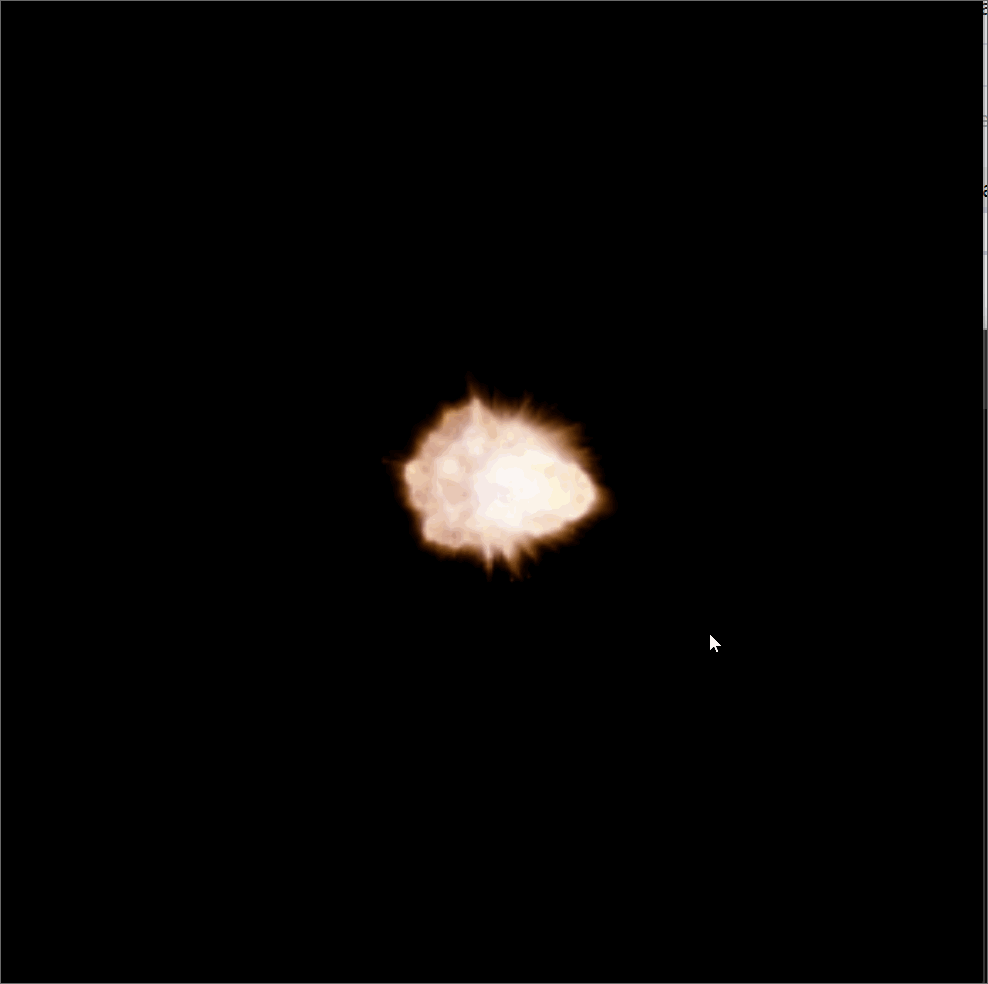
Hints/Requirements:
-
Your program should modify
billboard-animated.vsto compute the UV coordinates based on the number of rows and columns in the sprite sheet and the current frame. -
Your program should modify
explosion.cppto change the current frame based on the time. The animation framerate should be 30 frames per second.
2.4. Axis Billboard
In billboard-axis.cpp, implement an axis billboard that rotates around the Y axis. Your starting basecode looks like
the following.
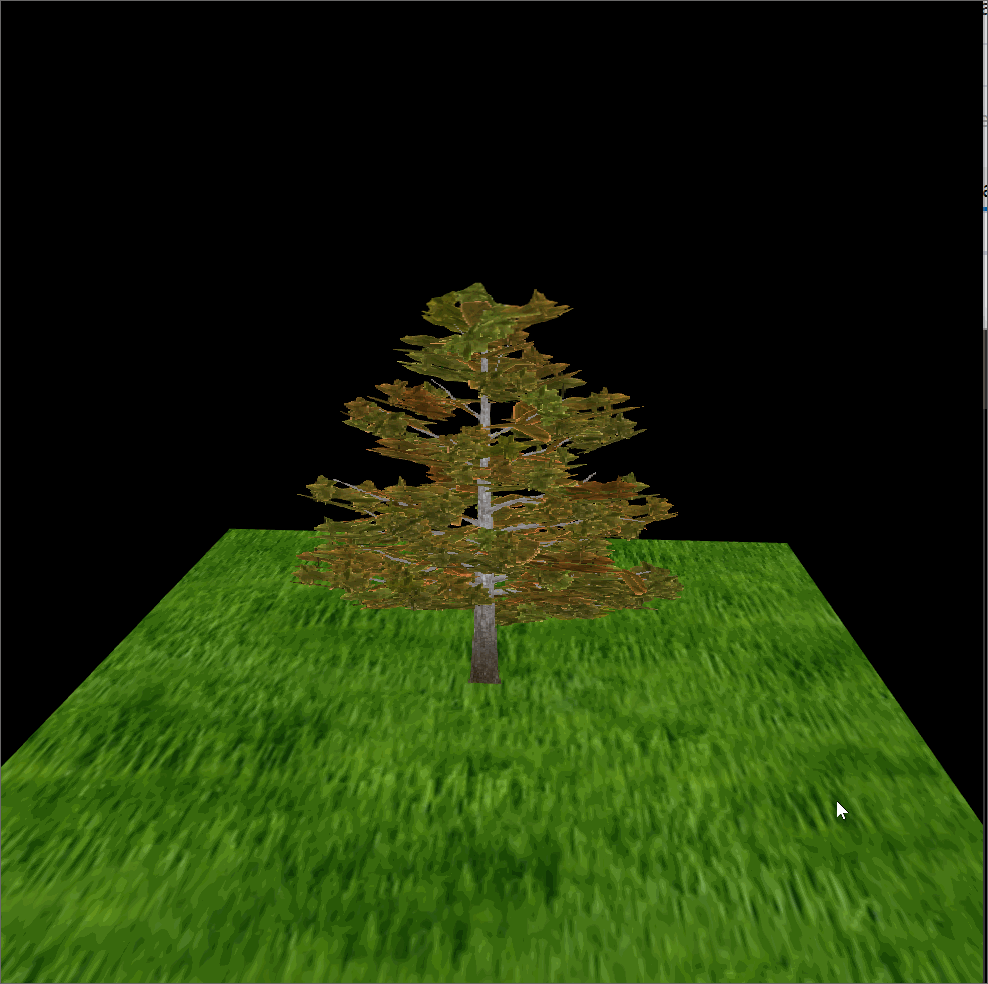
After you get the billboard working, it should look like
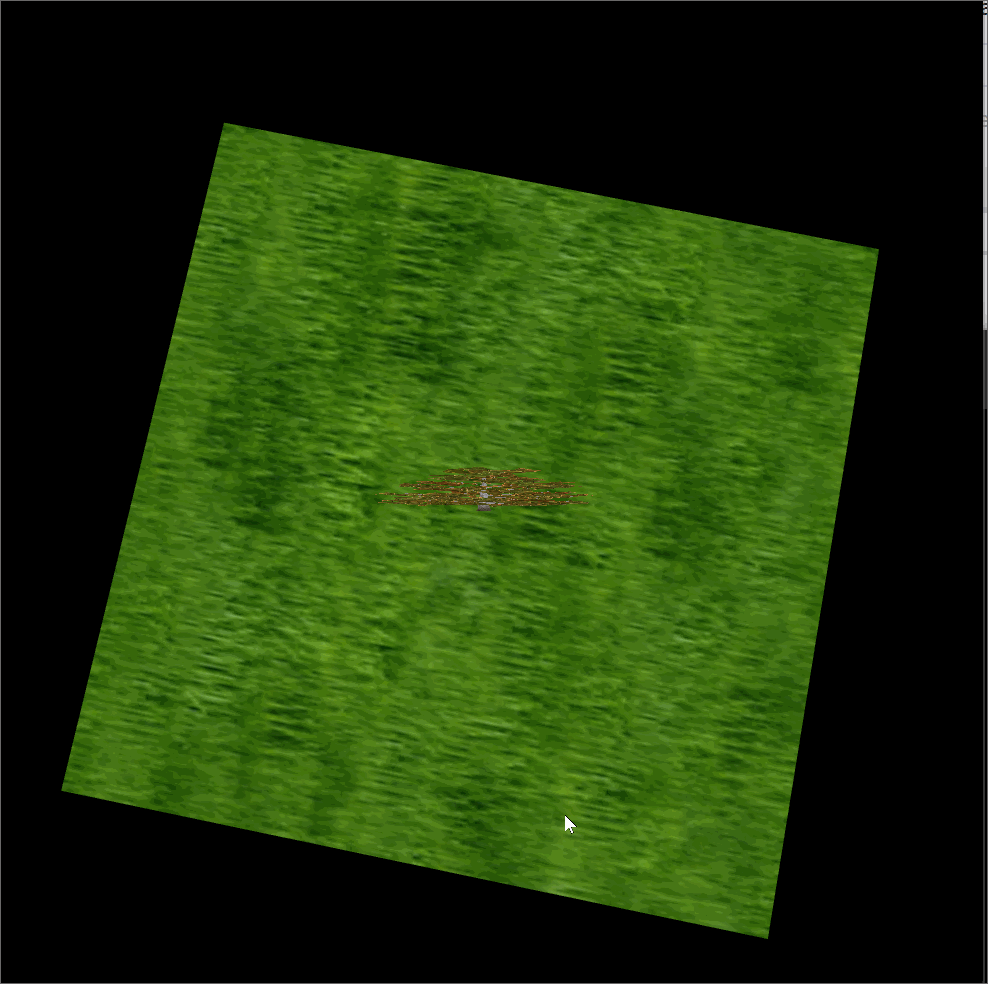
Hints/Requirements:
-
Use a matrix stack to implement your billboard.
-
Integrate your camera from the mesh-viewer so you can rotate around the billboard to check whether it is working.
3. Milestone #2
Due April 6th
3.1. Unique demo
In this file demo.cpp, implement a unique particle system. Here are some ideas:
-
Fire (animated sprites)
-
Smoke plume
-
Fireworks
-
Shape desolve
-
Trailing effects
-
Integrate particle effects with PLY models to make a scene
-
Implement a forest, or grass, or try an overlapping vegetation model
3.2. Update Readme.md
Update Readme.md to include documentation on your unique features and images created with your mesh-viewer.
3.3. What to hand in
-
Your code. Make sure your code is checked into github
-
One or more gifs or videos created using your software
-
Update
Readme.mdso it includes a writeup of the features your application supports. Be sure to point out any original features that you implement.
4. Grading rubric
Grades each week are out of 4 points.
-
(4 points) Milestone #1
-
(2 points) Sparkle trailing effect
-
(1 points) Explosion
-
(1 points) Axis billboard with tree
-
-
(4 points) Milestone #2
-
(0.5 points) Compiles and runs without crashing (on linux)
-
(1.3 points) readme and unique images/demos
-
(0.2 points) style and header comment
-
(2.0 points) unique features
-
Code rubrics
For full credit, your C++ programs must be feature-complete, robust (e.g. run without memory errors or crashing) and have good style. Some credit lost for missing features or bugs, depending on severity of error
-5% for style errors. See the class coding style here. -100% for failure to checkin work to Github -100% for failure to compile on linux using make